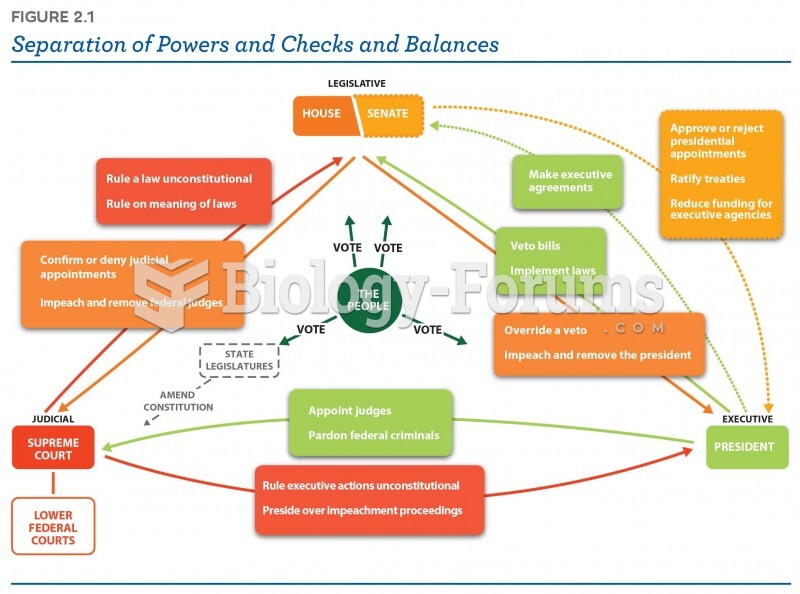|
|
|
Did you know?
There are 20 feet of blood vessels in each square inch of human skin.
Did you know?
More than one-third of adult Americans are obese. Diseases that kill the largest number of people annually, such as heart disease, cancer, diabetes, stroke, and hypertension, can be attributed to diet.
Did you know?
By definition, when a medication is administered intravenously, its bioavailability is 100%.
Did you know?
More than 34,000 trademarked medication names and more than 10,000 generic medication names are in use in the United States.
Did you know?
The ratio of hydrogen atoms to oxygen in water (H2O) is 2:1.
 In 2009, historian Woody Holton described how Abigail Adams shrewdly invested in the Continental Con
In 2009, historian Woody Holton described how Abigail Adams shrewdly invested in the Continental Con
 This engraving by William Russell Birch shows Congress Hall (left), which was occupied by Congress f
This engraving by William Russell Birch shows Congress Hall (left), which was occupied by Congress f





